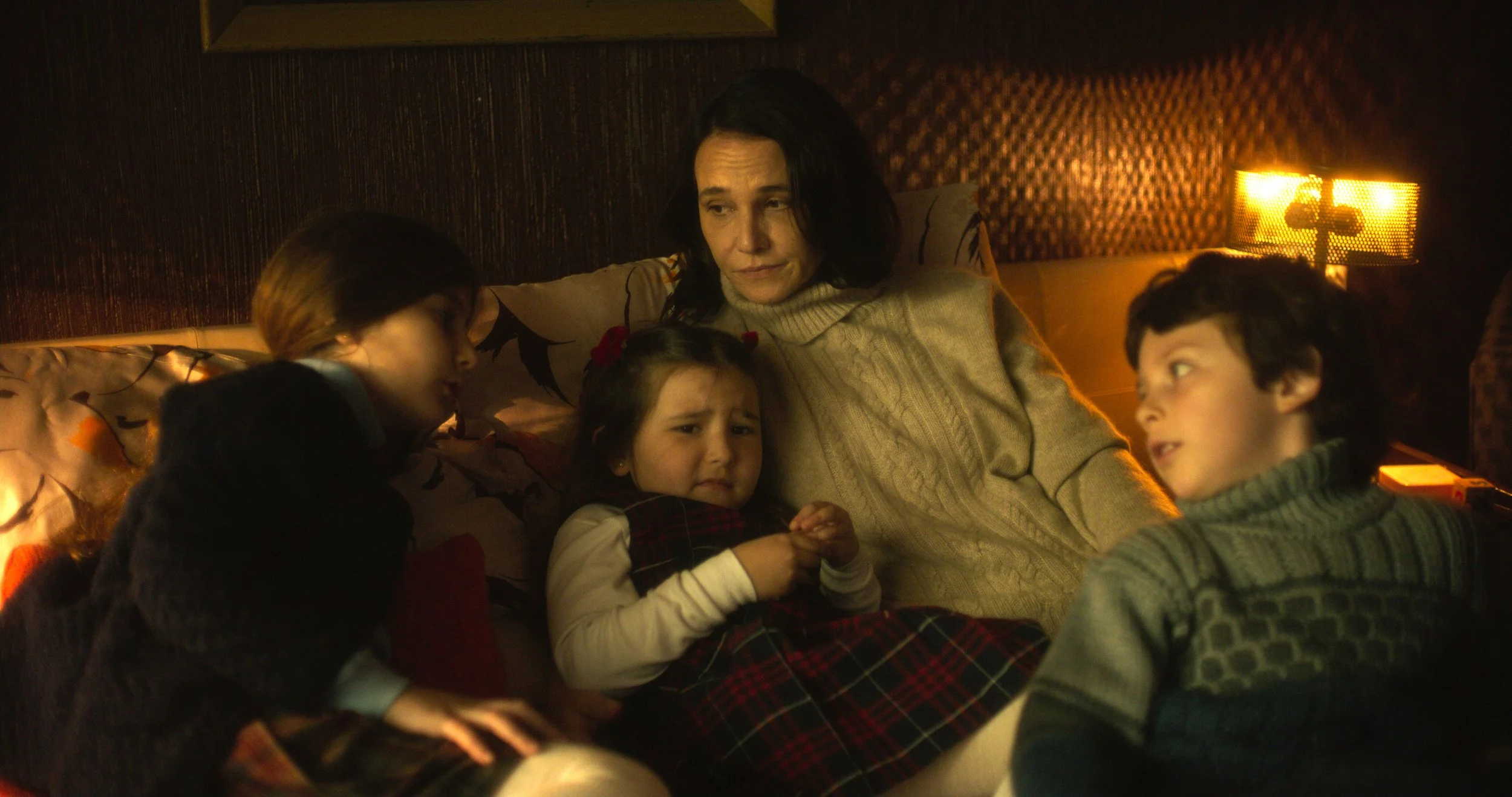Michael Ward on Saturday, May 13
★★★1/2
Though the film feels like it pulls its punches, Chile ‘76 is set under the trappings of the Pinochet dictatorship. Following a military coup of the Chilean government in 1973, Augusto Pinochet seized control as “Supreme President” in the summer of 1974. The country was in turmoil, and the Pinochet regime were imprisoning, rounding up, and executing members of the opposition.
That’s important context in understanding some of the symbolism and world weary characters which populate Manuela Martelli’s film. However, while one may anticipate those elements becoming pervasive in Chile ‘76, Martelli pivots into a personal story of one woman’s understanding of privilege, entitlement, and sacrifice.
On a visit to her summer home, Carmen (Aline Küppenheim), crosses path with local priest, Father Sánchez (Hugo Medina), who asks her to tend to a young soldier recovering from a ghastly bullet wound to his leg. Tasked with overseeing renovations, Carmen initially is rather begrudging in her willingness to help. However, as she forms a connection with the soldier and begins to learn and understand his story, the world starts to look different. Questioning the world as Pinochet’s tight grip on the country only intensifies, Carmen begins recognizing her place in a world that goes increasingly confusing, tense, and hard to (literally) stomach.
Martelli deserves praise for making a film full of escalating anxiety and keeping a steady pace. At times, Chile ‘76 is fascinating in how it almost fights with itself to stay on track. I would argue the film could loosen its moorings a bit more and allow stark, visceral examples of Pinochet’s regime. Instead, we see the trepidations and fear in how people react and communicate.
Küppenheim is terrific in holding the film together. At times, Soledad Rodríguez’s camera simply does not want to waver off of her expressive gaze and taut body language. Her interactions with Elias, the injured soldier, is effectively written and Martelli conveys a sense of unease through nearly every frame.
And yet, more of those moments would help. At times, Chile ‘76 gets stuck in the cypher of anticipation that the film will unravel to mirror the world Carmen is just starting to see unfold before her eyes. Close-kept, tightly wound and character-driven, Martelli’s film is strongly structured, rich with symbolism, and in need of more context to truly give the film the bruising impact it appears to be seeking.
Chile ‘76 was screened as part of the 49th Seattle International Film Festival and is screening May 13 and 14, 2023.

